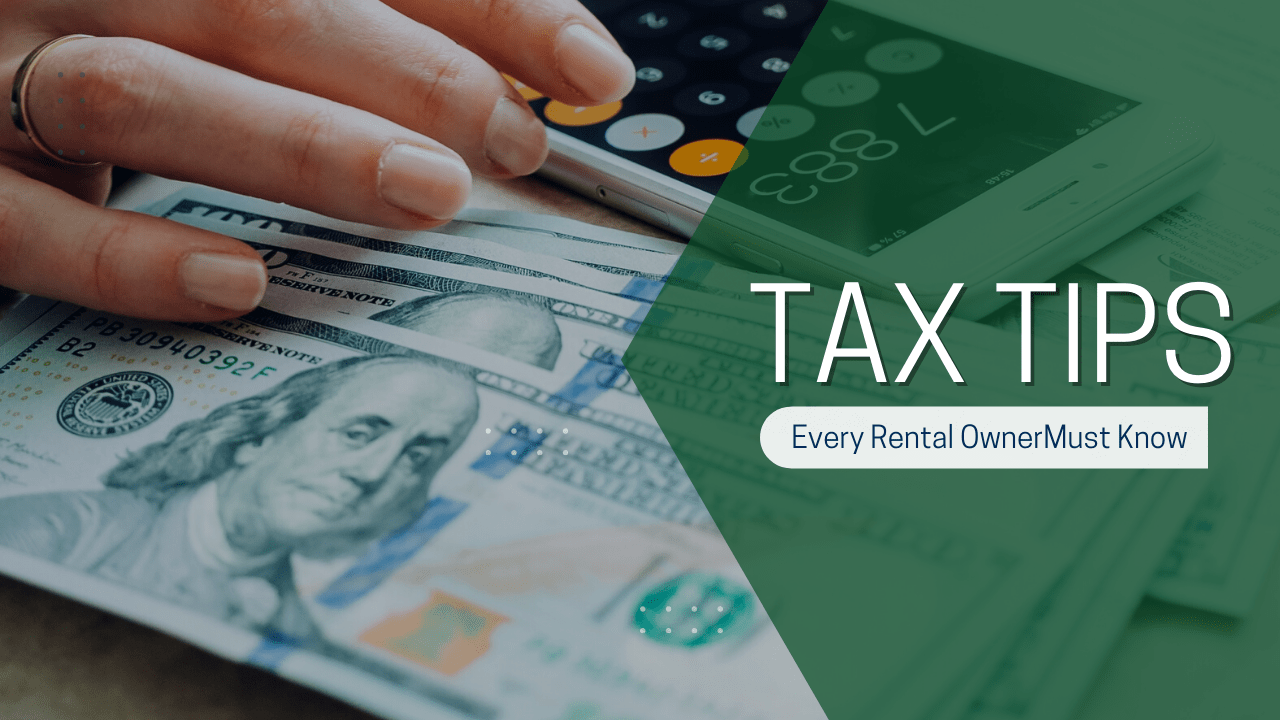Taxes may not be your favorite topic, and we get it.
But, when it comes to your Golden, CO rental property, the topic of taxes isn’t as unpleasant as you might think. In fact, there are several benefits that come with owning rental property that can help you reduce your tax liability and exposure.
You’ll always have to declare your rental income when you file your taxes. However, there are numerous deductions that you can take thanks to your rental property.
We recommend you work with a great CPA or tax accountant who can help you understand what you can and cannot write off when you’re filing every year. You should talk to your Golden property managers, too. If you’re working with a reliable, full-service management company, you’ll be informed of what you can do to increase your tax benefits.
Here are some of the tax tips we’re happy to provide. Talk about these with your accounting professional, and make sure you’re taking advantage of every benefit that’s available to you.
Depreciation and Golden Rental Properties
One of the best tax tools for real estate investors and rental property owners is depreciation. This allows you to write off part of the loss of value that any property experiences as it ages. Every property will undergo wear and tear and general deterioration, no matter how great its condition. The IRS has established 27.5 years as the amount of time that residential property depreciations under its General Depreciation System.
You can accelerate the depreciation loss with your rental property, which will help you lower your taxable income for the year at tax time.
Here’s how it works.
Depreciation of rental property is generally reported on Schedule E of a standard 1040, although there are situations in which you would use other forms. For example, Form 4562 may be used if you claim depreciation on a property in the year that you put it into service as a rental property.
To claim depreciation as a deduction on your taxes, these conditions are required:
- You must own the property for which you are claiming depreciation. There are limited exceptions to this.
- The property must produce income for you, meaning you must collect rent on that property.
- You must be able to determine the useful life of your property. It’s going to be different based on the type of property being depreciated. Everything has a different life cycle, or rate at which it wears down. For real estate, this is somewhat standardized and the 27.5 years applies, unless your property is subject to the Alternative Depreciation System, in which case it’s 30 or 40 years (this is rare).
- The useful life of the property must be greater than 1 year. Nothing that wears out in less than a year can be depreciated on your taxes.
If you begin renting out a home in one year and sell it within that same year, you cannot claim depreciation on that property.
Depreciation is often misunderstood, and it’s easy to miscalculate what you can claim. Make sure you are entitled to this tax break, and talk to a professional to determine what your benefit is.
Deducting Expenses Associated with Rental Property
The IRS sees your rental property as a business. That means that many of the expenses you incur as a business owner are tax-deductible. There are a few things you should always take advantage of when you’re claiming tax benefits.
- Insurance costs for your investment properties.
- Laurel Property Services LLC. property management fees.
- Additional professional fees such as accounting or legal costs.
- Maintenance and accelerated depreciation on household items.
- Travel costs involved in visiting your rental properties.
The IRS allows you to deduct only the ordinary and necessary expenses for managing and maintaining your rental property, and preserving its value and condition. Advertising a vacant property, for example, is a necessary expense, so you can deduct any advertising costs. Your landlord insurance is tax deductible and so is the cost of keeping utilities on.
Maintenance costs are deductible as well, but you have to be careful about what you consider maintenance and what is considered an improvement. The costs of materials and supplies when you’re maintaining your home are deductible. Anything that needs to be done to keep your property in good condition is acceptable.
However, you may not deduct the cost of improvements. According to the IRS the rental property is improved only if the amounts paid are for a betterment or restoration or adaptation to a new or different use. The IRS.gov website has a valuable section called Tangible Property Regulations – Frequently Asked Questions. If you’re unsure about whether you’re deducting a maintenance cost or a home improvement cost, you might find your answers there. A good property manager can also help you. Those improvement costs are recovered through the depreciation deduction.
Deferring Capital Gains Tax on Rental Property Sales
What happens if you sell a rental property?
Well, you will be expected to pay capital gains taxes on any sale of rental property. Your investment doesn’t qualify for the gain on sale exclusion in the tax code, which is why this is one tax area where most owners lose money.
The market in 2021 has been pretty hot, so a lot of owners sold their investment homes. That might mean big tax bills. It’s not like when you sell your personal home and potentially avoid paying capital gains on a large portion of the profits you earned. With rental property, you’ll pay long term capital gains taxes on any properties you’ve owned for more than a year and the rate depends on your income.
There are some tax tips that can help you avoid those capital gains taxes, however.
If you want to defer those capital gains taxes, you might want to consider a 1031 Exchange. In this scenario, you’ll sell one rental property and then use the proceeds to invest in a similar property or a series of properties. It won’t wipe away your tax liability entirely, but it will give you the opportunity to strengthen your investment portfolio and delay paying those taxes.
There’s a strict timeline involved, and you have to make sure the money from the sale is held in escrow, which is managed by an intermediary. These are the steps you’ll want to follow with a 1031 exchange:
Specific steps need to be taken when you want to defer your taxes with a 1031 exchange.
- Make sure your property qualifies for this benefit. This tax program is meant for investment homes. You cannot sell the home you’ve been living in and reinvest the money to buy a vacation home.
- You’ll need to exchange with a like property or properties. The new property you choose must have a value that is the same or higher than the original property. If you walk away from the exchange with any profit, it will be taxable.
- Find one property, two properties, or three to exchange with your current property.
- Pay attention to the timelines. You’ll need to identify a replacement property within 45 days of selling your original property. Then, you have 180 days to close on the new sale. The entire exchange must take place within the 180 days (meaning you don’t have 45 days plus 180 days – the clock does not reset).
- Use an intermediary and don’t take any of the cash from the sale of your property. The intermediary will hold your funds until they can be reinvested in your new purchase. Ask your property managers for a referral.
If this makes sense to you, it’s possible to sell one rental home and invest in another without any of the tax liability that comes with selling investment property.
Financial Reporting and Record Keeping
 Good records are critical when it comes to reporting and understanding your taxes. Hopefully, you’re working with a property management team that can provide monthly income and expense statements. You’ll need a 1099 when it’s time to file. A good system of record keeping will help you monitor the progress of your rental property, prepare your financial statements, identify the source of receipts, keep track of deductible expenses, prepare your tax returns, and support items reported on tax returns.
Good records are critical when it comes to reporting and understanding your taxes. Hopefully, you’re working with a property management team that can provide monthly income and expense statements. You’ll need a 1099 when it’s time to file. A good system of record keeping will help you monitor the progress of your rental property, prepare your financial statements, identify the source of receipts, keep track of deductible expenses, prepare your tax returns, and support items reported on tax returns.
Make sure you can document all of the income and expenses related to your rental activities. You’ll need receipts and invoices. If you’re audited, those documents will help you demonstrate that you’re lawfully filing your taxes.
Before you can deduct some of your rental property expenses, you’ll be expected to substantiate them. Keep track of all your expenses, including travel expenses and management fees. Good records lead to valid tax returns. The IRS is strict about documentation and paperwork, and you don’t want to find yourself facing additional penalties and fees just because you cannot produce the right documents.
If you have any questions about taxes and how they apply to your rental property, please don’t hesitate to reach out for help. Contact us at Laurel Property Services LLC. In addition to providing property management in Golden, we also serve Wheatridge, Morrison, Lakewood, Arvada, and Genesee, CO.



